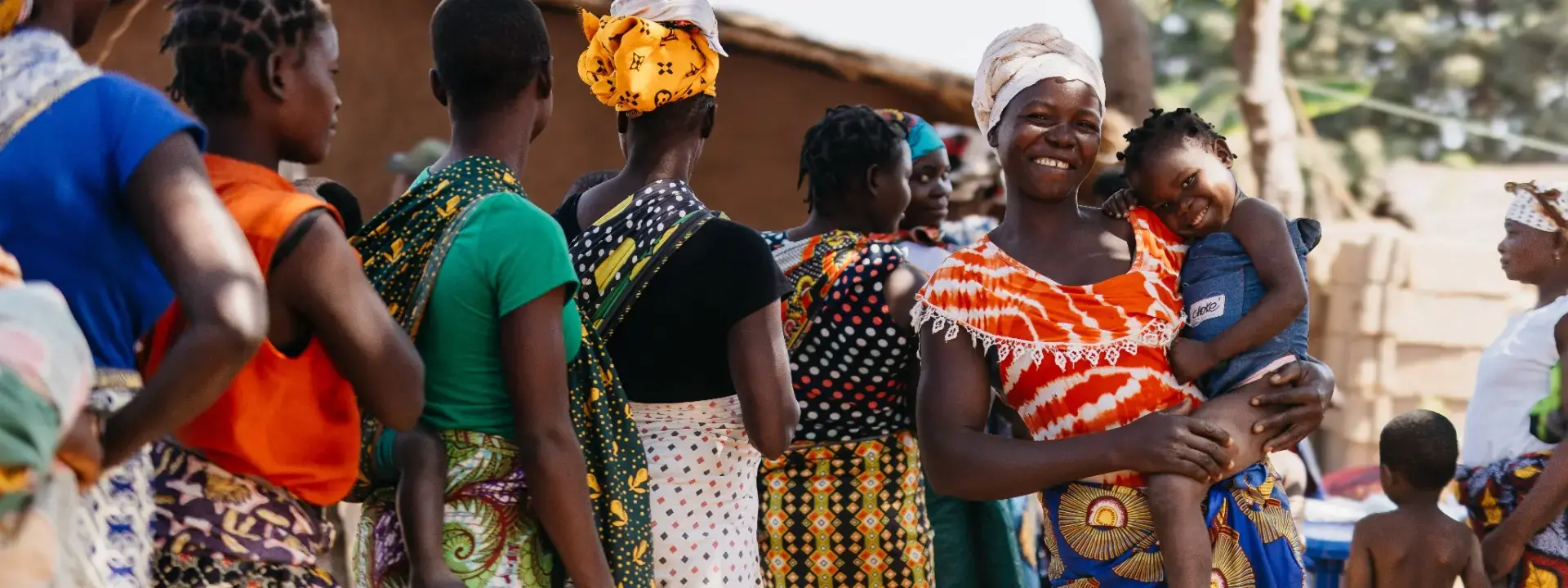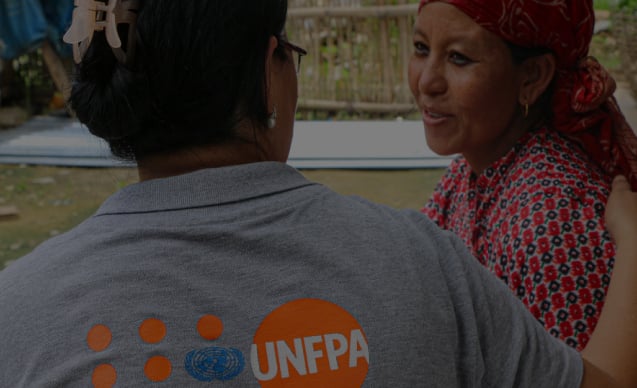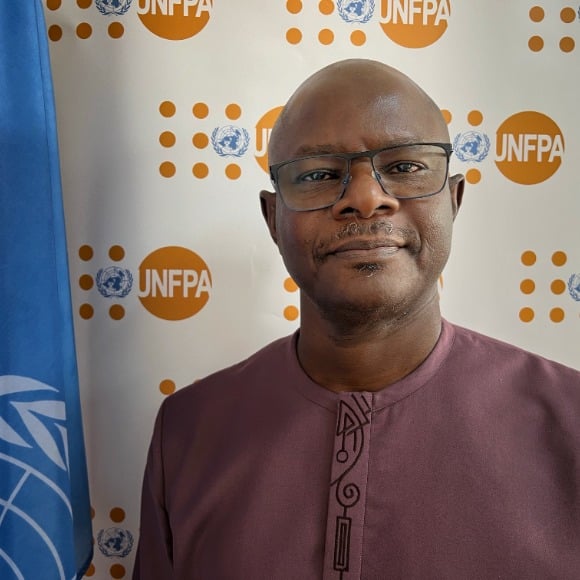UNFPA in Mozambique
The United Nations Population Fund (UNFPA) is the UN's international development agency that deals with population issues and is responsible for expanding the possibilities for women and young people to lead healthy sexual and reproductive lives.
UNFPA works to accelerate universal access to sexual and reproductive health, including voluntary family planning and safe motherhood; and seeks to realise rights and opportunities for young people.UNFPA is present in more than 150 countries, improving people's lives as a catalyst for action and an advocate for its issues. Working through alliances and partnerships with governments, other UN agencies, civil society and the private sector, UNFPA makes a positive difference to billions of people, especially those most in need.
UNFPA also helps countries use population data to anticipate future challenges; provides technical assistance that strengthens and empowers its partners; supports policy formulation and national capacity building, ensuring that reproductive health and the rights of women and young people remain central issues on the development agenda.
UNFPA is making progress - fewer women are dying in childbirth, more unwanted pregnancies are being prevented and more young people are having their opportunities expanded. But we need to scale up these efforts if we are to achieve a healthy and just world.UNFPA - Creating a world where every pregnancy is wanted, every birth is safe and the potential of every young person is realised.
UNFPA in Mozambique
The programme is part of the United Nations development aid framework for 2012 - 2015, drawn up with the Government of Mozambique, in dialogue with civil society and development partners in conjunction with the national poverty reduction strategy, with the overall aim of achieving the millennium development goals.
The overall objective is to reduce poverty and disparities in order to improve the lives of the most disadvantaged people in Mozambique. To achieve this goal, the results are formulated in three focus areas in which the United Nations has a comparative advantage: Governance, Social and Economic. In each focus area, UNFPA contributes according to its mandate with specific results that complement the contributions of other organisations:
- Governance: UNFPA contributes three products in the area of governance through integrated support for three programme areas: population and development, reproductive health and rights and gender equality: (a) increased political support for legislation and policy to realise the human rights of young people and women. UNFPA will strengthen the Parliamentary groups on issues related to sexual and reproductive rights, HIV/AIDS and young people. UNFPA will strengthen the capacity of the media and civil society groups to promote human rights-based approaches to sexual and reproductive health and gender equality issues to the general public; (b) increasing the effectiveness of national systems to mainstream gender. UNFPA will strengthen national institutions to integrate gender into policies and programmes and will support mechanisms to respond to gender-based violence through technical assistance and training for different stakeholders; and (c) improving the availability, analysis and use of disaggregated data for development planning, particularly to reduce disparities at district level. UNFPA will strengthen the availability of demographic data through the adoption of integrated statistical information management and will provide support for thematic studies on population and development based on the 2007 Census and other surveys. The focus of these strategies is on reducing disparities and strengthening cross-cutting issues, including HIV, at provincial and district level.
- Social Area: UNFPA contributes four products in the social area aligned with the main national plans and strategies, the integrated national plan to achieve millennium development goals four and five, the family planning strategy and the national HIV prevention strategy. Two products relate to access to services: (a) improvement in the political and social environment for sexual and reproductive health, including HIV prevention. UNFPA will support political dialogue, the involvement of civil society and the creation of partnerships. It will advocate for sustainable funding for health, support for data collection on sexual and reproductive health and quality assurance, especially on contraceptive prevalence, teenage pregnancy and maternal mortality. UNFPA will contribute to the development of the communication strategy for family planning and the national fistula programme; (b) increasing access to integrated and gender-sensitive sexual and reproductive health services at primary level for transfer to health facilities. UNFPA will contribute to improving sexual and reproductive health services by supporting the security of reproductive health items, focussing on the logistics system to guarantee the availability of supplies and the provision of contraceptives, training health personnel in essential and emergency obstetric care and family planning services. Attention will be paid to strengthening links with HIV and improving the quality of supervision, monitoring and evaluation. UNFPA will also support integrated services for survivors of gender-based violence.
- Services Demand: Two outputs are related to demand for services: (c) increased demand for and participation in quality sexual and reproductive health services, with a focus on family planning at the community level. UNFPA contributes to the increase in institutional deliveries by supporting community health councils to strengthen the link between health units and communities and contribute to increasing the prevalence of family planning aimed at young women and by involving men and community leaders and strengthening women's and youth organisations at provincial and district level; (d) reducing girls' and young people's vulnerability and risk of HIV infection. This will be achieved by supporting community-led socio-cultural change and healthy behaviour. UNFPA will particularly support the scaling up of the pilot intervention in participatory planning based on community rights. The approach is aimed at addressing sensitive areas such as condom use, early marriage and gender-based violence.
- Economic Area: UNFPA contributes three economic products through integrated support to three programme areas: population and development, reproductive health and rights and gender equality: (a) increasing the empowerment of rural women. UNFPA complements the work of other UN organisations and non-governmental women's organisations by improving awareness of human rights in rural communities and strengthening the organisational capacities of rural associations that contribute to women's access to land and microfinance; (b) income generation included in the multisectoral approach for young people. In the context of UNFPA support to strengthen the national adolescent sexual and reproductive health and HIV/AIDS prevention programme, the life skills package offered, namely health knowledge, communication and leadership skills will be expanded to include the income generation component in order to increase empowerment and facilitate behaviour change. This objective will be achieved by linking youth associations with national initiatives to improve young people's access to the labour market led by the ILO and UNIDO; (c) contingency plans for gender-sensitive emergencies. UNFPA will contribute to the design and implementation of the national disaster strategy, strengthening of disaster management committees to address gender-specific needs, support for the continuity of sexual and reproductive health services in emergencies and the availability of dignity kits for safe childbirth.




